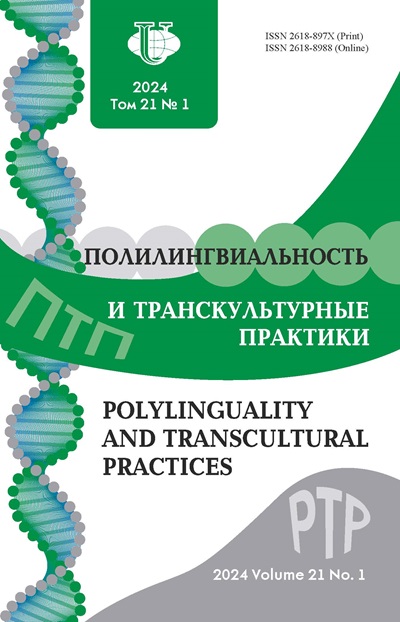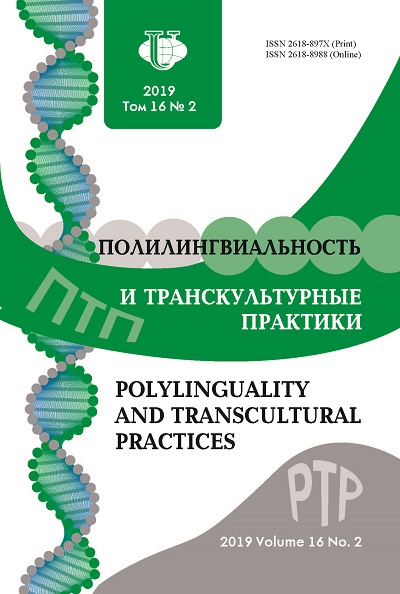Bilingual Education and the Problems of Ethnic and Linguistic Identity in the USSR and Modern Russia
- Authors: Marusenko M.A.1
-
Affiliations:
- St Petersburg State University
- Issue: Vol 16, No 2 (2019)
- Pages: 190-203
- Section: Languages in contact
- URL: https://journals.rudn.ru/polylinguality/article/view/21326
- DOI: https://doi.org/10.22363/2618-897X-2019-16-2-190-203
Cite item
Full Text
Abstract
The article discusses the relationship of bilingual education with the problems of ethnic and language identification in the USSR and modern Russia. The concept of protecting the rights of national minorities includes an extensive range of linguistic rights and the right to education in minority languages. This right is protected by many international agreements and documents of international organizations and is considered to be an unconditional conquest of fighters for human rights. However, this ignores cases of inconsistencies in ethnic and linguistic identity, which are increasingly frequent in the modern world, and the right of citizens to free ethnic and linguistic self-determination. Planning in the field of bilingual education and teacher training requires objective information on the real number of people willing to study in minority languages, which can be obtained as a result of language monitoring and censuses.
About the authors
Mikhail A. Marusenko
St Petersburg State University
Author for correspondence.
Email: mamikhail@yandex.ru
Doctor in Philology, Professor, Honorary Worker of Higher Education of the Russian Federation, Head of the Department of Romance Philology, St. Petersburg State University
13B Universitetskaya Emb., Saint Petersburg, 199034, Russian FederationReferences
- Phillipson, R. 1990. Linguistic Imperialism. Oxford: Oxford University Press.
- Obrazovanie v mnogoyazychnom mire [Education in the Popylingual World]. 2002. Ustanovochnyi dokument YUNESKO. Parizh: YUNESKO. Print. (In Russ.)
- Leont’ev, A. Yazykovye prava cheloveka [Language Rights of a Human]. Web. URL: http://www. observer.materik.ru/observer/N01_94/1_09.htm (accessed: 14.01.2019).
- Tollefson, J.W. 2002. Language Policies in Education: Critical Issues. Oxford: Blackwell. Print.
- Vickers, I. 1996. Defoe and the New Sciences. Cambridge: Cambridge University Press. Print.
- Gupta, A.F. 1997. “When Mother-tongue Education is not Preferred”. Journal of Multilingual and Multicultural Development. 18 (6): 496-506.
- Le Page, P.B. 1992. Sociolinguistic Aspects of Literacy. K. Bolton, H. Kwok (Еds). Sociolinguistics Today: International Perspectives. London: Routledge. Print.
- May, S. 2003. “Rearticulating the Case for Minority Language Rights”. Current Issues in Language Planning. 4 (2): 95-125. Print.
- Calve, L.-J., and L. Varela. 2000. XXIe siècle: le crépuscule des langues? Critique du discours Politico-Linguistiquement Correct. Estudios de Sociolinguistica. 1 (2): 47-64. Print.















